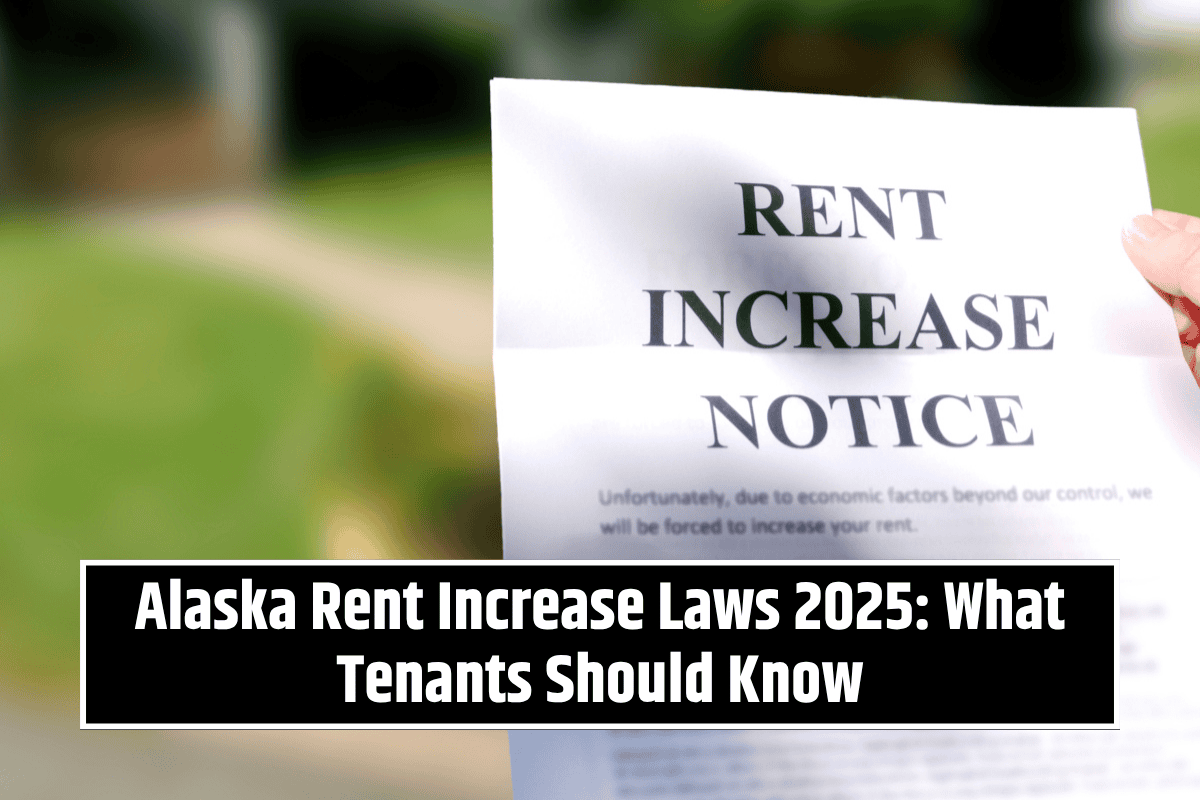In Alaska, landlords must follow specific rules when deciding to raise the rent on their rental properties. These rules are designed to protect tenants while ensuring that landlords can still adjust rents as necessary. Knowing the notice periods and conditions under which rent increases are allowed can help both parties understand their rights and responsibilities.
Notice Period Requirements
In Alaska, there are clear rules about how much notice a landlord must provide before increasing rent, depending on the type of lease agreement.
- Month-to-Month Tenancy: For tenants on a month-to-month lease, a landlord must provide at least 30 days’ notice before the rent increase takes effect.
- Week-to-Week Tenancy: For tenants on a week-to-week lease, the landlord must give at least 14 days’ notice of a rent increase.
- Fixed-Term Lease: During the term of a fixed lease (like one for six months or a year), the landlord cannot increase the rent unless the lease agreement explicitly allows for such changes. Rent increases are not permitted in the middle of a fixed-term lease unless specified.
These notice periods ensure that tenants have enough time to decide if they want to accept the new rent terms or move out.
How Much Can a Landlord Raise Rent in Alaska?
Unlike some states that have rent control laws, Alaska does not have any statewide rent control. This means that landlords are generally free to raise rents to whatever amount they choose. However, they must follow the required notice periods for rent increases as mentioned earlier.
While the law doesn’t limit how much the rent can be increased, landlords should still be mindful of local housing conditions and their relationship with tenants.
Potential Restrictions on Rent Increases
While there are no statewide caps on how much a landlord can raise rent, there are some rules that landlords must follow:
- Retaliation: A landlord cannot raise the rent as retaliation against a tenant for exercising their rights, such as filing a complaint about unsafe living conditions.
- Discrimination: Rent increases cannot be discriminatory. Under the Fair Housing Act, it is illegal to raise rent based on race, religion, nationality, gender, familial status, or disability.
- Habitability: Even if a landlord raises rent, they must continue to provide a habitable living space. If the property is in poor condition or violates health and safety codes, the landlord cannot justify a rent increase.
Securing Fixed Rent in Alaska
Tenants in Alaska who want the security of a fixed rent rate for a certain period can negotiate a lease agreement with the landlord. This agreement will specify the rent amount for the term of the lease, typically for one year, although the duration can vary.
To maintain a fixed rent rate, tenants should:
- Negotiate a longer lease: Longer leases may provide more stability by locking in the rent for a longer period.
- Understand local laws: Tenants should be aware of their rights and the laws around rent increases in Alaska to ensure that their lease terms are fair and legally sound.
- Document everything: Make sure that all rent amounts, lease durations, and any clauses about rent increases are clearly written in the lease agreement.
When Can Rent Increases Become Illegal in Alaska?
A rent increase can become illegal in Alaska if it violates certain conditions:
- Discrimination: It’s illegal for landlords to raise the rent based on discriminatory reasons, such as the tenant’s race, gender, religion, or disability.
- Violating Lease Terms: If a tenant has a fixed-term lease, the landlord cannot raise the rent until the lease ends unless the lease explicitly allows for an increase during the term.
- Improper Notice: If the landlord doesn’t provide the required notice for a rent increase (30 days for month-to-month tenants, 14 days for week-to-week tenants), the increase could be considered invalid.
- Retaliation: It is illegal for a landlord to increase rent as a form of retaliation against a tenant for asserting their legal rights, such as reporting health or safety violations.
Is There a Limit to Rent Increases in Alaska?
There is no statewide rent control in Alaska, which means that landlords can generally raise rent as much as they want. However, they must provide the appropriate notice and ensure they follow any local housing codes. For example, a month-to-month tenant must receive 30 days’ notice before a rent increase, and the notice must be in writing.
Although the law doesn’t limit rent hikes, tenants can challenge an increase if it violates lease terms, is discriminatory, or doesn’t follow the proper notice period.
The Rent Increase Notice in Alaska
A landlord in Alaska must always provide tenants with a written notice if they plan to raise the rent. The notice must be given in advance and specify the amount of the increase and the date it will take effect.
- Month-to-Month Tenancy: 30 days’ notice is required.
- Week-to-Week Tenancy: 14 days’ notice is required.
If a landlord fails to provide proper notice or raises the rent illegally, tenants may have the right to dispute the increase.
In Alaska, while landlords have the ability to raise rent, there are rules in place to protect tenants. Landlords must give proper notice, typically 30 days for month-to-month tenants, and cannot raise rent in retaliation or for discriminatory reasons. Additionally, tenants with fixed-term leases are protected from rent increases unless the lease specifically allows for them.
It’s essential for both landlords and tenants to understand these regulations to ensure smooth and lawful rental agreements. Open communication and clarity about lease terms are key to preventing conflicts regarding rent increases.
